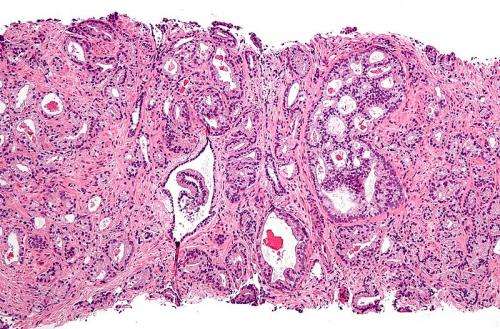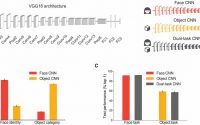Molecular mechanisms regulating prostate cancer hypoxia identified

A Northwestern Medicine study has identified a molecular mechanism that helps regulate the progression of castration-resistant prostate cancer, according to findings published in the journal Oncogene.
Investigators led by Jindan Yu, MD, Ph.D., professor of Medicine in the Division of Hematology and Oncology and of Biochemistry and Molecular Genetics, discovered that the downregulation of the protein FOXA1 regulates hypoxia, or lack of oxygen, in prostate cancer tumors and promotes tumor progression.
“The function of FOXA1 in inhibiting lineage plasticity is important because it is the metastasis and drug resistance of castration-resistant prostate cancer that kills the patient,” Yu said.
Lourdes Brea, a fourth-year student in the Driskill Graduate Program in Life Sciences (DGP), was co-first author of the study.
Prostate cancer is the second-leading cause of cancer-related mortality among men in the U.S. While treatment options such as radiation and hormone therapy are available and effective in treating early-stage cancer, many patients develop treatment resistance and progress to metastatic castration-resistant prostate cancer (CRPC).
Current treatment options for CRPC offer limited benefit for patients and few studies have investigated the molecular mechanisms of hypoxia underlying CRPC progression, which is crucial for developing effective targeted therapies.
Recent work from the Yu laboratory and others discovered that FOXA1 becomes down-regulated in prostate cancer metastasis, suggesting that FOXA1 may play a tumor-suppressive role in CRPC.
In the current study, Yu and collaborators aimed to determine whether FOXA1 down-regulation controls hypoxic programming in the prostate tumor microenvironment and contributes to cancer progression.
By performing in vitro analysis of prostate cancer cell lines, the investigators discovered that FOXA1 binds to the protein HIF1A, inhibiting its expression. In turn, HIF1A helps regulate hypoxia gene expression induced by FOXA1 loss.
Additionally, through HIF1A, FOXA1 down-regulation promotes the infiltration of macrophages into the tumor microenvironment, which helps the tumor become immunosuppressive and increases prostate cancer cell invasion.
“When macrophages are recruited into the tumor, they can actually antagonize T-cell function and impair immune response, which is bad,” Yu said.
The findings point to FOXA1 as a key player in regulating hypoxic tumor microenvironments in CRPC and overall promotion of prostate cancer progression. Now, Yu’s team is investigating FOXA1’s role in regulating immune response in in vivo models of prostate cancer.
Source: Read Full Article


